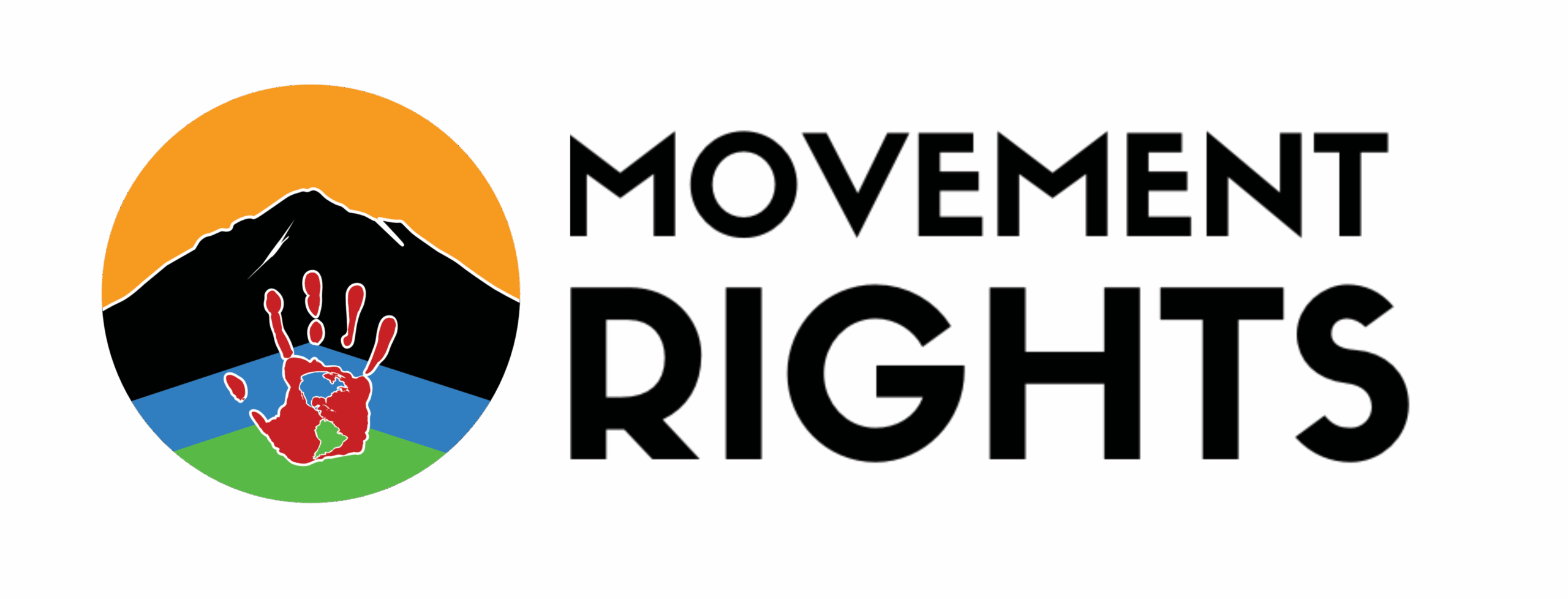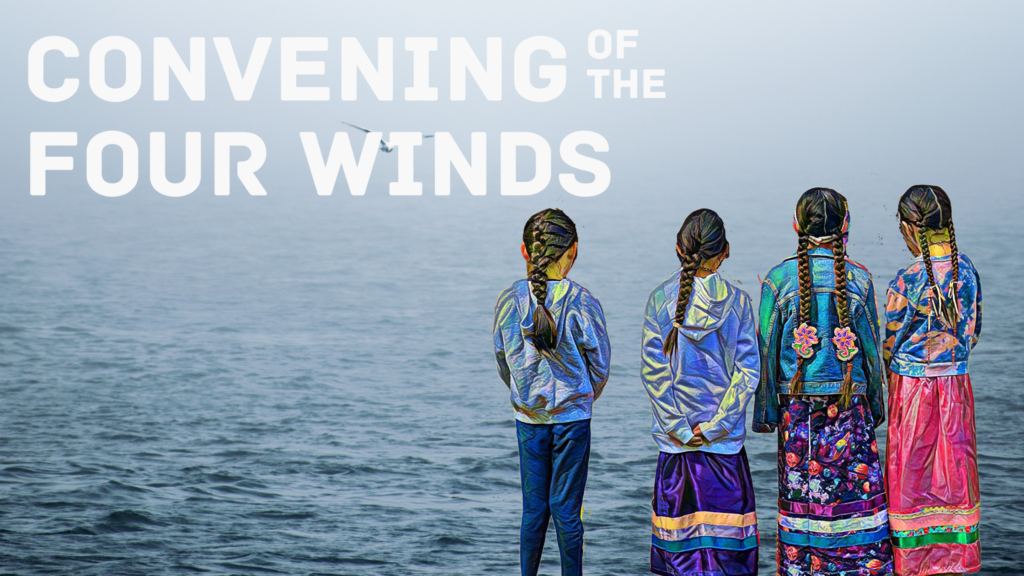By Shannon Biggs, co-founder, Movement Rights
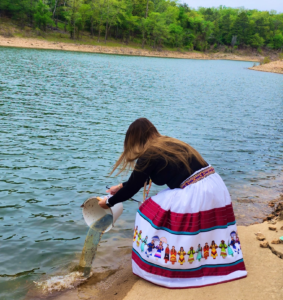
In Oklahoma alone there are 78,000 miles of fresh water that run through the territories of 38 tribes and hundreds of non-tribal communities on its way to neighboring states. That water is under threat from many sources including mining, dewatering, industrial agriculture—but most critically from fossil fuels. Some of the largest crude oil and natural gas wells in the country can be found in Oklahoma. Many are located on or near tribal communities.
Water protection & Tribal Sovereignty
In 2022, upon passing the Rights of Rivers into Ponca law to protect Ní’skà and Ni’ží’dè (the Arkansas and Salt Fork rivers), the tribe understood they cannot act alone against state-sponsored fossil fuel destruction (read statute here). The Arkansas river alone runs 1500 miles through Oklahoma. “The rivers connect us all,” says Ponca Environmental Ambassador, Casey Camp Horinek. “We’re calling all water protectors upstream and down to come together in ceremony and action—to learn from each other and listen to what the rivers have to teach us.”
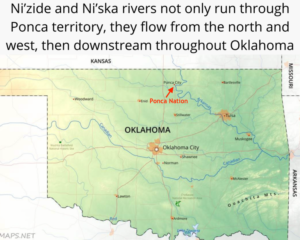 The Ponca understand that the Rights of Rivers is only one solution of many. The grip of the fossil fuel industry is strong. Many tribes participate in what the state has insisted is the “only economic pathway.” Indigenous Just Transition strategies are not visible in Oklahoma, and information about the public health, long term economic and environmental impacts are state-regulated, and industry approved. But if we do not make the shift in fossil fuel epicenters like Oklahoma, we cannot address the climate crisis or protect water.
The Ponca understand that the Rights of Rivers is only one solution of many. The grip of the fossil fuel industry is strong. Many tribes participate in what the state has insisted is the “only economic pathway.” Indigenous Just Transition strategies are not visible in Oklahoma, and information about the public health, long term economic and environmental impacts are state-regulated, and industry approved. But if we do not make the shift in fossil fuel epicenters like Oklahoma, we cannot address the climate crisis or protect water.
The Big Picture: Intertribal Collaboration for the Waters
And while not all tribes agree on the role of state-sponsored fossil fuels, Casey believes that tribal communities can come together for the protection of the waters and to affirm tribal sovereignty over environmental issues, something that has been under attack from Governor Kevin Stitt. Casey and other Indigenous water protectors from the region developed the idea for a series of gatherings between 2022-2024, each hosted by different tribal groups from the 4 directions of Oklahoma (and beyond) to share strategies, provide trainings and opportunities for intertribal coalition-building for water protection. Directly led by a different tribal community each time, Movement Rights was asked to assist in organizing the Convening of the Four Winds along with other allied partners.
As Casey Camp Horinek says, “Water is sacred and our survival depends on our ability to place human activities within the boundaries of the Earth’s ability to absorb what we do…not just for our tribe. We have so much to learn from our waters, everything upstream impacts everything downstream, we are all connected.”
Watch this short video from the first Convening of the Four Winds hosted by the Ponca nation to see how the Ponca understand Rights of Nature for their people, and invite other Oklahoma tribes to find their own path to water protection and intertribal collaboration.
The 2nd Convening of the Four Winds on the Cherokee Reservation
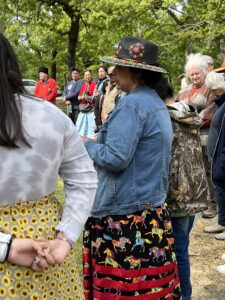
The hope was always that the initial convening would inspire Indigenous peolple from other tribes to host the next Convening—that it would continue in the 4 directions organically. It was JoKay Dowell (Cherokee/Quapah) leader of the Eagle and the Condor Indigenous Peoples Alliance in Tahlaquah, OK that requested to host the 2nd Convening on the Cherokee Reservation in partnership with the Ponca Pa’thata Women’s Society. “Great societal and economic change is at hand. Factually, in terms of fossil fuel phase-out due to its profoundly harmful effects on water, climate and all life, we are behind schedule,” JoKay said, “Its time for Indigenous people to share our traditional knowledge of how to live in balance with the natural world before its too late.”
Over 150 participants from 59 tribes and 8 states (and First Nations Canada) joined us for Earth Day weekend April 22-23, 2023. Jokay had a specific vision for what a Convening in her territory needed including canoe trainings on the water, a traditional Cherokee fireside ceremony at dusk, and Indigenous Just Transition.
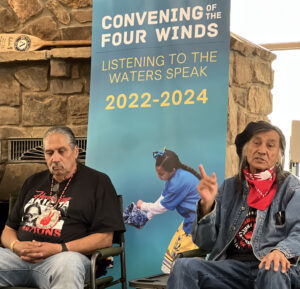
Another important discussion featured two Wounded Knee Occupation Veterans, a 71-day siege that happened on the Pine Ridge reservation in 1973 to call out the US government’s failure to honor Native treaties, police brutality and rising poverty on reservations. Veteran Craig Camp Sr. recalled that while he brought his anger to Wounded Knee, it was there among the 200+ activists who occupied the town of Wounded Knee, that he and many others rediscovered their traditional spirituality and have carried it forward. It is on the shoulders of those warriors that today’s Indigenous water protectors and land defenders continue to stand.
Thanks to our partners the Indigenous Environmental Network and Morgan Brings Plenty some of the weekend’s panels were live-streamed including: Wounded Knee Veterans panel; Beyond Wounded Knee: Indigenous Activism today; Fighting Fossil Fuels in Indian Country & MMIW; and Indigenous Strategies for Water Protection including Tribal Sovereignty and Rights of Nature. The full schedule of events can be found here. View the photo gallery here.
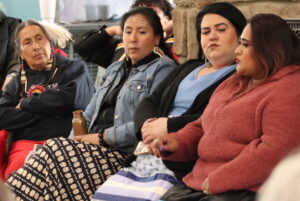
“The Convening turned out just as we had hoped,” says JoKay, who is also a Communications Specialist with IEN. “Our goal was to bring people together in a peaceful natural setting to discuss the challenges faced by Indigenous communities and Tribal Nations. Participants have repeatedly expressed excitement and appreciation for he hands-on trainings and the topics presented for discussion. It was a great success.”
Where do the Convenings of the 4 Winds go from here?
There are many solutions to the water crisis and climate, but all of them require us to come together regionally as water protectors and share those solutions especially in fossil-fuel epicenters like Oklahoma. A recent report by IEN estimates that over the past decade, Indigenous people engaged in defense of land and water “stopped or delayed greenhouse gas pollution equivalent to at least one-quarter of annual U.S. and Canadian emissions.”
Now that the first Convenings in the North (Ponca territory) and the East (Cherokee Reservation) have happened, we will continue gathering in community and ceremony to protect the Rights of Rivers, and come together to reciprocate strategies and resiliency. Two more in the South and West led by other tribal communities are in process. After the four regional gatherings across the state, participants, tribal leaders and Oklahoma Indigenous water protectors will gather in one place to discuss opportunities for intertribal action and coalition-building.
Advancing Indigenous Rights, honoring treaties, and supporting tribal Indigenous-led Rights of Nature and LandBack are among our best hopes for the kind of powerful culture shift needed to stop the worst harms of climate catastrophe that is already upon us, and to confront a legal, political and capitalist system and culture that protects elite wealth and sees nature only as property to be dominated for profit.
To support the next Convenings, visit Movement Rights website to learn more or make a donation.

